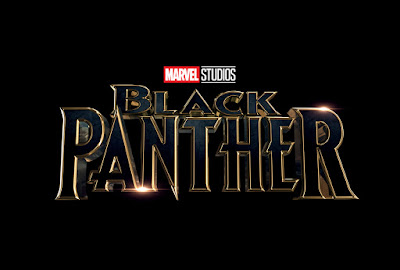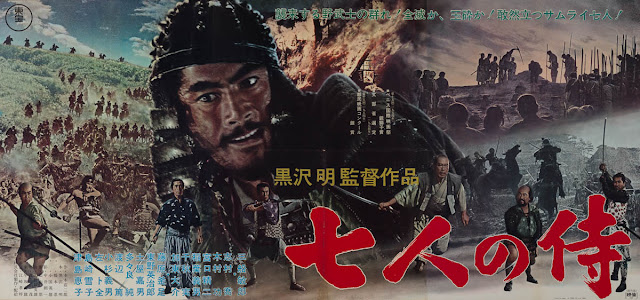Black Panther (Dir. Ryan Coogler, 2h 15 m)
It is entirely fair to say that Black Panther is an epoch defining film; a $200 million dollar juggernaut of a film (at time of writing, it's already made this back in the USA alone, smashing several box office records along the way), in which the protagonist, the villain, the heroine, the comic relief, and indeed every single named character apart from a secondary villain and a secondary protagonist (the appropriately named "Tolkien Whites" of the enjoyably crazy Andy Serkis and the straight-laced Martin Freeman) is played by an African or African American.
Black Panther, however, is more than just a film with black talent; its visual style, its soundtrack, and even its themes are deliberately and decidedly Afrocentric, from the Afro-futurist Wakanda, to its story of revenge, to its villain, who has touches of both the tragic Othello and Black Power figures such as Malcolm X in his attempts to rebuild the world with Wakanda, and Africa, atop it. It is a film about power and responsiblity, about the past, and the future, and it is unrepentantly, apologetically a a film in which black characters are represented, in which black problems are struggled against and overcome, and where blackness is celebrated.
At the centre of the film are both T'Challa, the Black Panther and now king of the small, but technologically advanced kingdom of Wakanda (played by Chadwick Boseman), and his rival to the throne, the tragical villain, Killmonger (played by Michael B Jordan). Both characters are a level of complexity rarely seen in the Marvel Cinematic Universe-indeed, the film's overall tone is altogether more serious than really, any MCU film since the similarly nuanced The Winter Soldier. Like Bucky (who makes a, spoilers, brief post-credits appearance), Killmonger is not necessarily a bad person; with his father dying at the hands of the previous Black Panther, and having grown up in a period and location where he saw first hand the suffering of African-Americans, his riling against the isolationist Wakanda, accusing it (quite rightly, in certain cases) of standing by whilst the African continent, and indeed Africans worldwide suffer, is as much a critique of the isolationism of America under Trump as it is of the more gentrified African American communities across the USA.
It is remarkable that, despite Black Panther being a film which is boldly Afrocentric and Afrofuturist, it is unafraid to critique the unevenness of the African experience, and its key underlying message focuses, laserlike, upon the idea of being unashamedly such, even in the face of potential neo-colonialism-one could certainly argue that Killmonger is not so very far away from any number of young black men, fatherless, history-less, robbed of an identity, and railing against a society which seeks to keep them in literal or figurative chains. Black Panther's villain, thus, is a remarkably nuanced figure, full of sorrow and anger-even in his final scenes when bested by T'Challa, there is a pride to the young man, who would rather die a free man than a slave-this is not to say that the film is entirely sympathetic to him-his plan, and indeed his violence and single-bloody-mindedness in executing his plan, is frightening, and we are left in no doubt that he is indeed the villain of the piece. Yet, it is also clear that, for once in a while, the Marvel Cinematic Universe has added another nuanced, memorable-and yes, empathetic- villain.
T'Challa, in comparison, is a man upon whom responsibility has fallen, and now has to grow into the position of king; at first, there is an easy-going nature to the new monarch-his introduction, for example, is a smart, extremely confident figure, a man who almost brags "I never freeze", and indeed, until Killmonger appears, is a cocky, intelligent, and altogether more assured protagonist than the Marvel Universe has had of late. Yet, at its heart, his arc is both focused on moving Wakanda into the world, and away from its isolationist view, but also dealing with both the mistakes of his ancestors, and more importantly, his father-slowly realising both that Wakanda has stood idly by in the face of black suffering, but also that, to an extent, every king of Wakanda has been complicit, and may have done terrible things in order to continue this. At the centre of this is his relationship with Killmonger-both are, by the end of the film, two men approaching the same solution, albeit in very different ways-and this, in essence, is the entire point of the film-no nation, no man can stand alone, and every nation, every culture can, and indeed should contribute.
Around these two excellent character are an excellent cast of heroes and heroines, from T'Challa's younger sister Shuri, a technological genius to rival Tony Stark (played to perfection as a mix of fast talking, Q-style genius and enjoyable snarker by Letitia Wright), to the ever-enjoyably tough, and no-nonsense Okoye (Danai Gurira). Every single one of these characters adds something to the film (even in the case of Martin Freeman's CSI agent, Ross), who is gamely tagged along with the rest of the group, and is a refreshing inversion of the token black character in an otherwise white cast, whilst Andy Serkis grins, grimaces, and jokes through his scenes as Killmonger's right hand man. Not only this, but as countless social media posts have indicated, these characters, in their mere existence, are a major source of rolemodels and, crucially, representation, in the mainstream. For years, after all, the MCU have had more characters played by actors called Chris than named black characters, and with Black Panther, it takes a small, if important step towards redressing this, in equality, and towards a truly representative group of heroes to represent this world and beyond.
This Afro and Afro-American talent is not only just in front of the camera, and not just shown in its magnificent, and utterly African visual sensiblities, but behind it; director Ryan Coogler is a rising talent in cinema, and much like Thor Ragnarok, Marvel are now able to hand projects to lesser known-and more diverse-voices, all but assured of success. Kendrick Lamar's soundtrack is much the same-much as both Guardians of the Galaxy films brought a panoply of lesser known rock and pop songs, so Lamar brings rap music to the Marvel Universe, in a series of songs every bit as astute as his own fare. Every inch, every skyscraper, every claw and every character is unashamedly, proudly, Afro-centric-a film in which black characters, in a black country struggle, and eventually overcome problems of their own culture's making-a film determined, for all its superhero trappings, to represent a part of the cinema-going world too often relegated to a token. This is a film in which a black audience can look up at the screen and, in a place so often the exclusive preserve of white men, can see not only black heroes, but black heroines too.
For this, Black Panther is, in a series that continues to redefine superheroes films, a film that is even bigger than that. Black Panther redefines what a blockbuster can and cannot do, who it can and cannot represent. It is a must see film, in every sense of the word.
Rating: Must See

.jpg)

Comments
Post a Comment